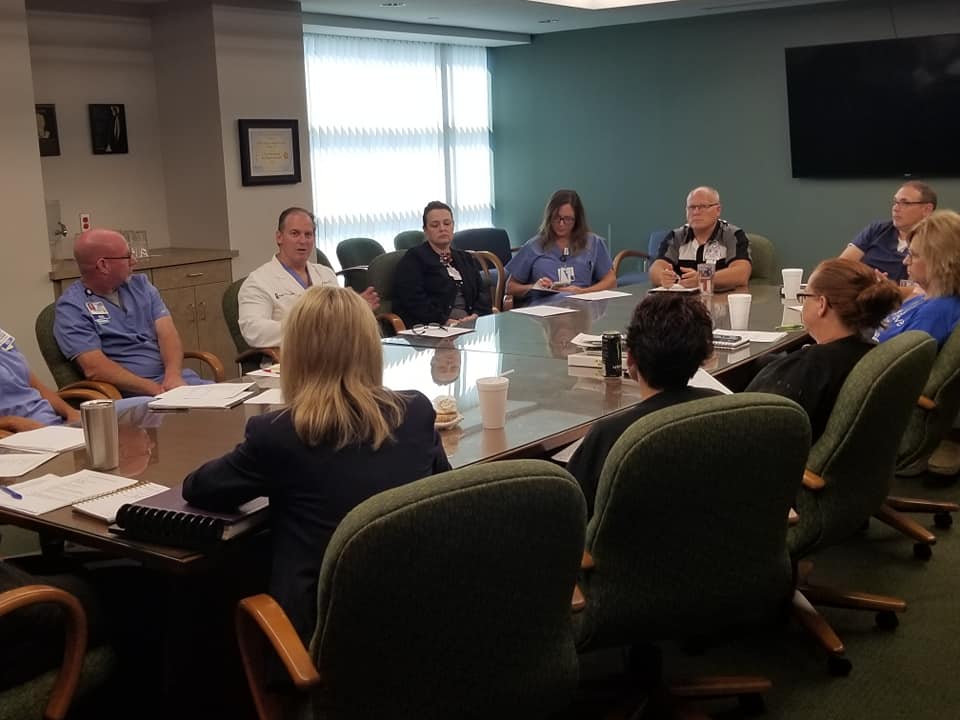
Far from overwhelmed, Tennessee’s rural hospitals are having the opposite problem amid the coronavirus pandemic. They’re not seeing enough patients to pay the bills.
At Henry County Medical Center in Paris, the chief nursing officer is answering the phones.
“It is eerily quiet in the hospital,” says Neely Ashby.
In order to conserve protective gear and equipment, Tennessee and many other states have banned elective procedures. The problem is, hospitals make much of their profit margin on procedures now deemed non-essential. Henry County will do about 30 a day, Ashby says.
“Our surgery schedule is down to between four and eight cases a day,” she says.
No more joint replacements or bariatric surgery. Even basic colonoscopies are being put off.
In less than a week, Henry County Medical Center has resorted to furloughing more than a quarter of its staff — including many nurses.
“Simply, the work is not here right now because the patients are not here right now,” Ashby says.
The hospital has been taking samples from patients who may have COVID-19 to send off for testing, but only a handful each day. And none of them have required hospitalization yet.
Lost Revenue, Increased Costs
“If they’re not treating any COVID patients, then that’s just a loss of revenue,” says Sayeh Nikpay, a health care economist from Vanderbilt’s Department of Health Policy.
Even with more than 100 hospitalizations statewide, most hospitals in Tennessee are not treating patients with coronavirus at this point, even though they all expect it’s just a matter of time.
So they can’t afford to cut back too much on staffing. And Nikpay says they’re paying more for many supplies right now, like masks, if they can even find them.
“At the exact same time that their revenue is getting cut, their costs are going to go up,” Nikpay says.
The Tennessee Hospital Association is hearing from many hospitals in the position of laying off workers, even at this critical time.
“It’s certainly not what your average citizen is expecting to hear that in this time a hospital is actually furloughing staff,” says THA CEO Wendy Long.
The massive federal rescue package includes some money for hospitals, though it appears to be targeted at the largest centers treating the most patients. Even if some of that money reaches rural facilities, Dr. Long says it won’t come quickly enough for some already in trouble.
“It’s going to be hard to continue to make payroll there if we don’t see some assistance coming from the federal, state or both levels,” she says.
Hospitals shouldn’t be performing elective procedures right now, Long says. But she adds that they also deserve swift help since every community may be about to lean on their hospital like never before.

